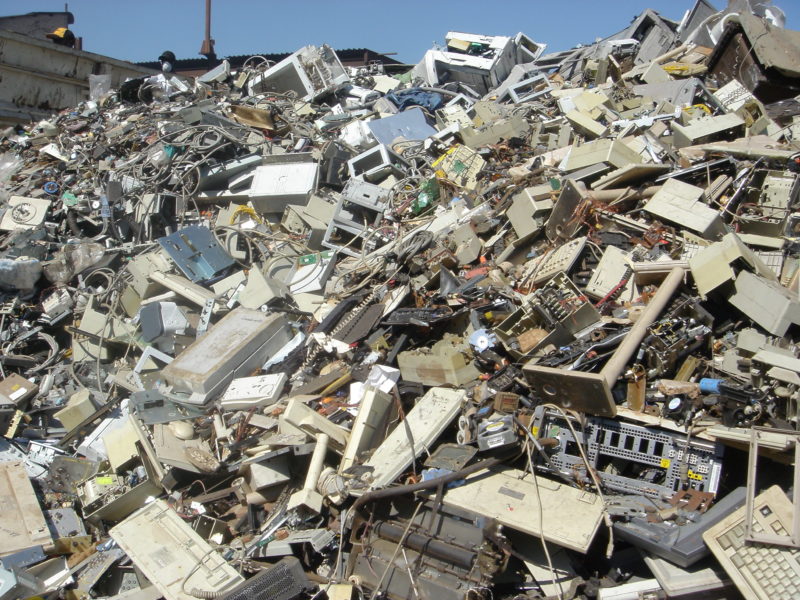As part of Hinckley Recycling’s responsibility to the environment and awareness campaign, it decided to include the training of scavengers – Association of Vendors of Used Computers and Allied Products (AVUCAP) – as part of its corporate social responsibility (CSR) activities.

The week-long training commenced on Monday, February 26, 2018 to Friday, March 2, 2018. Due to the hazardous nature of all electronic waste (e-waste), e-waste recycling has to be handled responsibly and conducted in the most environmentally friendly manner. Therefore, the training was centered on the best practices for E-waste recycling.
Hinckley Recycling, who began recycling operations last year, is known for the safe and responsible processing of all E-waste streams. However it of common knowledge the abundance of scavengers, truck pushers, scrap dealers or fondly called “the informal sector” in our communities. These individuals move from place to place picking-up E-waste & scrap metals from households and offices who in turn receive a kick-back for their E-waste. It is important to note that this defined daily activity is majorly the means of livelihood of these scavengers. However, visiting the dumpsites around Lagos shows the process & end-result from the E-waste collected by the scavengers.
Belinda Osayamwen, Business Development Manager for Hinckley Recycling, commented: “Because this is the only means of livelihood of these scavengers, they strive to extract as much value from the E-waste. Unfortunately in the process of value generation, they employ crude methods such as burning, smashing, hitting, cracking & even melting materials with no personal protective equipment (PPE) or wears!”
The health and environmental hazards associated with irresponsible or informal recycling cannot be over emphasised. These scavengers over a period of time suffer from respiratory tract infections, cancer, and loss of eyesight .In addition, the environment where the informal recycling takes place is inherently polluted with the hazardous fractions from the E-waste being discarded by these individuals. It goes without saying, the ripple effect of these nefarious activities in its neighbouring communities. The plants, animals, water systems & eventually the populace are affected with elements of these hazardous wastes.
Adrian Clews, Managing Director for Hinckley Recycling, commented: “The introduction of the Extended Producer Responsibility (EPR) by the Nigerian Government & OEMS will assist the Recycling companies in the country to evacuate & responsible recycle a larger number of E-waste from the households & offices as well as even give back a token to the populace”
Hinckley Recycling therefore equipped the few members of the informal sector present at the just concluded training with PPE to guide their recycling activities whilst the EPR is being established. An independent Laboratory was also on ground to run health checks and lab tests for the scavengers in a bid to further implore them to desist from the self-inflicted harm via their informal recycling activities.
It will be wholly beneficial to the whole nation, if more awareness on E-waste recycling is made to the public as well as the incorporation of the EPR Organisation to manage and subsidize the current cost that responsible recycling companies have to bear from the total processing of the hazardous & non-hazardous materials of E-waste. This will ensure a more formal process for E-waste recycling where designated recycling bins or pick-up points are made accessible to the public.
